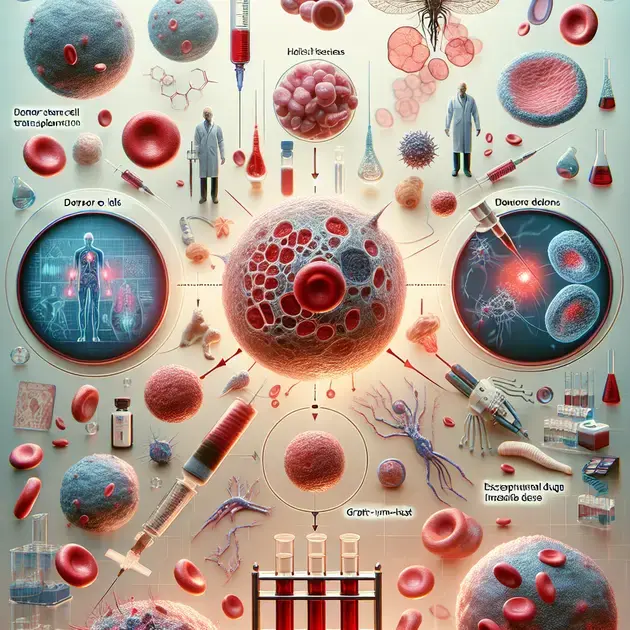This can lead to serious complications, ranging from mild skin rashes to organ damage. Currently, treatment options for graft-versus-host disease are limited, highlighting the need for new therapeutic approaches.
The clinical trial focused on patients undergoing “half-matched” stem cell transplantation, also known as haploidentical transplantation. This type of transplantation is commonly used when a fully matched donor is not available. However, half-matched transplants carry a higher risk of developing graft-versus-host disease due to differences between the donor and recipient’s immune systems.
In the trial, participants were randomly assigned to receive either itacitinib or a placebo in addition to standard care. The results were encouraging, with a lower incidence of severe graft-versus-host disease observed in the itacitinib group compared to the placebo group. Moreover, the drug was generally well-tolerated by the patients.
Itacitinib functions by inhibiting the JAK1 enzyme, an important pathway involved in the immune response. This pathway plays a crucial role in the activation and proliferation of immune cells responsible for graft-versus-host disease. By blocking JAK1, itacitinib has the potential to modulate the immune response and reduce the risk of graft-versus-host disease.
While these preliminary findings are promising, further research is needed to confirm the effectiveness and safety of itacitinib in preventing graft-versus-host disease. Nevertheless, the potential impact of this investigational drug in improving outcomes for stem cell transplantation in blood cancers should not be underestimated.
In conclusion, stem cell transplantation is an important treatment option for various blood cancers, but the risk of graft-versus-host disease remains a concern. The inclusion of itacitinib in standard care for half-matched stem cell transplantation shows promising results in reducing severe graft-versus-host disease. This investigational drug targets a specific immune signaling pathway, potentially mitigating the harmful effects of donor immune cells attacking the patient’s tissues. Continued research is essential to fully comprehend and harness the advantages of itacitinib in enhancing the outcomes of stem cell transplantation.
